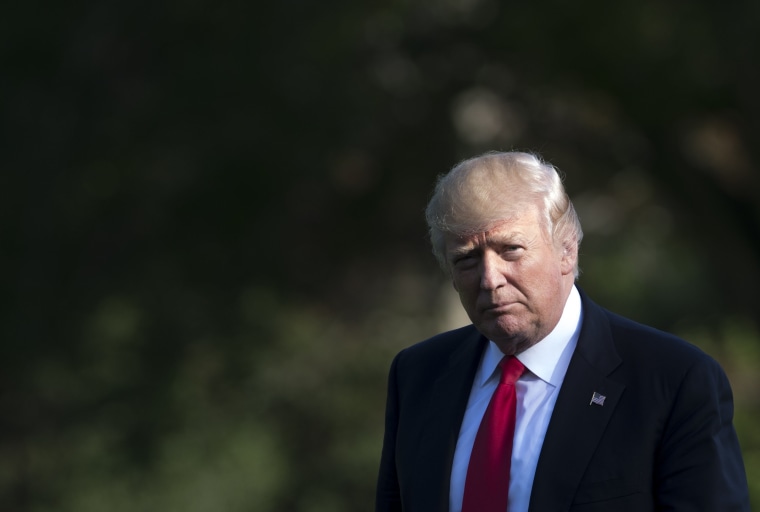For the most part, when former Special Counsel Robert Mueller fielded questions from congressional Republicans, there wasn't much of value for the public to learn. In one especially farcical instance, Rep. Debbie Lesko (R-Ariz.) complained that the Mueller report didn't have as many references to Fox News as she would've liked.
But there were exceptions. Rep. Ken Buck (R-Colo.), for example, asked the former special counsel, "Could you charge the president with a crime after he left office?" Mueller replied, "Yes."
Taken aback, Buck asked again, "You believe that you could charge the president of the United States with obstruction of justice after he left office?" Again, Mueller replied, "Yes."
During a brief Q&A with reporters on the South Lawn yesterday afternoon, it seemed Donald Trump didn't fully understand the testimony. NBC News' Hallie Jackson asked the president whether he's concerned about a possible indictment after leaving office. Trump threw a little tantrum.
"[Mueller] did a correction later on in the afternoon. And you know what that correction was, and you still asked the question. Do you know why? Because you're fake news. And you're one of the most."And let me just tell you, the fact that you even asked that question, you're fake news. Because you know what? He totally corrected himself in the afternoon."
Mueller did not totally correct himself in the afternoon, probably because there was nothing to correct. He was right about this the first time.
The more Trump was presented with reality, the more he resisted it, saying over and over again that Mueller didn't say that Trump could be charged after leaving office, reality be damned. The more he was patiently presented with the truth, the more the president stubbornly refused to believe it.
Trump insisted -- three times -- that the reporter should "read his correction," which led Jackson to again explain that Mueller's "correction" had nothing to do with whether Trump could be charged after leaving office.
Either unwilling or unable to understand these rather simple details, the Republican eventually said, "That's why people don't deal with you, because you're not an honest reporter."
Trump's ignorance was cringe-worthy, but it struck me as notable for a couple of reasons.
First, there was a clarification yesterday afternoon, but the president's confusion notwithstanding, it dealt with Mueller's approach to a Justice Department policy on indicting a sitting president, not a former one.
In a rather literal sense, during his little tantrum on the White House's South Lawn, Trump didn't know what he was talking about.
Second, there is a larger point to keep in mind. As we’ve discussed, Trump has been implicated in a variety of alleged crimes, though he'll apparently be shielded from prosecution so long as he’s in office. If he were to lose in 2020, however, that shield would disappear, and the prospect of an indictment would become quite real.
Indeed, by most accounts, the only way for Trump to even try to ensure he faces no criminal liability is for him to remain president for another four years.
